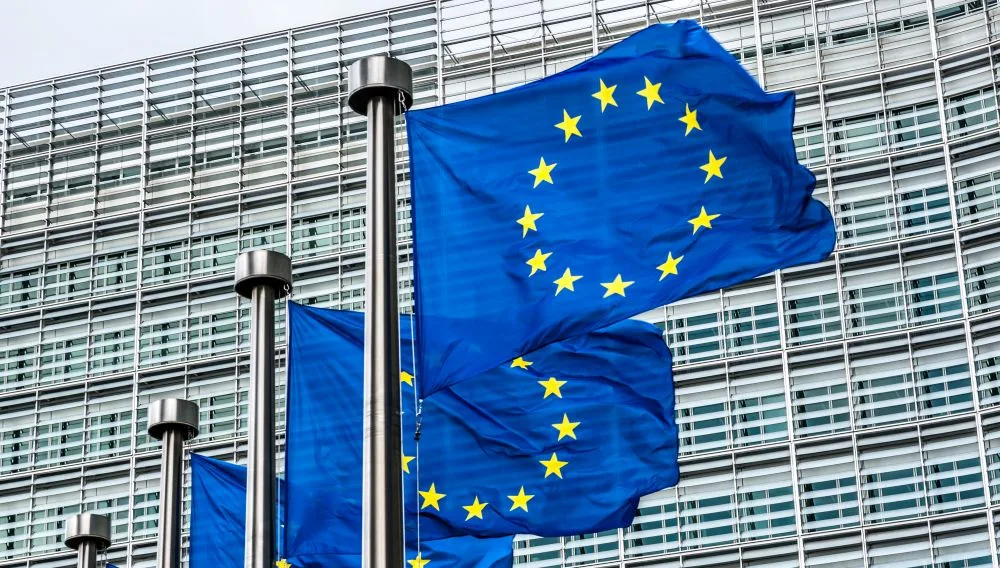Rarely has a report like Mario Draghi’s on European competitiveness held up such a stark mirror to Brussels. Since 2008, EU productivity has steadily fallen behind the US and China; the cause is no mystery, but a chronic investment gap: €270 billion less per year in R&D than US firms, according to Draghi himself. This gap is not just economic—it’s geopolitical, and above all, communicational.
Today, Europe imports more than 80% of the infrastructure and technology underpinning its digital ecosystem, and seven out of ten foundational AI models originate beyond the Atlantic. When critical infrastructure—from data storage to large language models—is designed, trained, and monetised outside our borders, public discourse and institutional resilience are bound to external interests. Security is no longer a matter of armies—it’s a matter of stacks: who designs the chips, who owns the cloud, and who calibrates the algorithms moderating our public conversations.
From dependency to “EuroStack”
The academic proposal dubbed EuroStack outlines a digital firewall: €300 billion over a decade to regain control over the essential layers—hardware, software, and data—currently dominated by Alphabet, Microsoft, or Amazon. This is not a nostalgic form of protectionism, but a strategic state capacity to steer public investment towards mission-driven goals: closing the digital divide, ensuring that AI aligns with community principles, and shielding infrastructure from interference. In other words, shifting from “correcting market failures” to actively “shaping markets” through a public value lens.
Why narrative matters as much as infrastructure
Sovereignty isn’t just about cables and servers. It’s, above all, the story that legitimises public intervention in an ecosystem where tech giants have monopolised not only technology, but common sense. Alphabet and Meta have long framed the idea that innovation thrives best away from regulation. Draghi refutes this narrative: good regulation doesn’t stifle—it stimulates innovation and anchors it to territory.
This is where strategic communication comes into play. Europe needs a coherent discourse that explains to citizens, businesses, and allies why building a firewall is not protectionism, but systemic prevention. Just as NATO justified its existence in military defence, the EU must articulate the why of a digital NATO: who funds it, who governs it, and how it avoids replicating the “digital feudalism” exported by Silicon Valley.

The reputational risks of dependence
When over 70% of the AI models trained on European data respond to non-EU jurisdictions, the Union is exposed to three immediate risks:
- Loss of intangible assets: data generated by citizens and institutions fuels algorithms that extract value abroad.
- Communicational vulnerability: content moderation, disinformation policies, and even the public sphere are governed by criteria set in California.
- Regulatory instability: whenever the US or China change their tech frameworks, Europe reacts defensively, tweaking GDPR or the AI Act to patch gaps it never controlled to begin with.
The role of crisis communication
This context demands a rethinking of reputational risk protocols. If tomorrow a breach in a non-European cloud provider exposes sensitive data from a European agency, the crisis will not be merely technical: it will require narrating why that dependency persisted, who outsourced the risk, and what roadmap exists to prevent recurrence. Organisations—both public and private—need response plans where digital due diligence and third-party management sit alongside cybersecurity and operational continuity.
Towards a European pact between state, business, and society
Draghi’s recommendation to inject an additional 4.7% of GDP into innovation sounds bold; the real challenge is translating that investment into collaborative governance. It’s not enough to subsidise local deep tech. Access to the market must be conditioned on tech transfer, and foreign giants must form alliances with European actors. This also requires reinforcing the narrative: explaining that “community preference” is not a wall, but an invitation to share know-how in exchange for access to 450 million consumers.
Epilogue: a future that speaks with its own accent
Europe is wagering more than competitiveness over the next decade—it’s wagering its ability to set the rules of the digital game. The submarine cable, the lithographic chip, and the dataset that feeds AI are not neutral infrastructures; they are architectures of power. Equipping ourselves with a voice of our own—technological, regulatory, and narrative—is the minimum condition for sovereignty to shift from ideal to practice.
The final question is not whether the EU can afford this shift, but whether it can afford not to make it. Because on the global digital board, neutrality doesn’t exist: either you design the platform, or you live under someone else’s. And Europe’s reputation—its democratic credibility, its social model, and its geopolitical weight—depends on whether the next stack carries a European label.
Final thought: The corporate side of digital sovereignty
This is not just a challenge for governments or institutions. It’s a wake-up call for companies. As Europe begins to define its own technological path, every organisation must ask: where do we stand in this shift? Are we merely users of platforms built elsewhere, or are we ready to co-create local ecosystems of trust, data responsibility, and digital ethics?
The coming years will demand more than compliance. They will require positioning. Companies that fail to anticipate this shift—from digital consumers to digital citizens—may find themselves on the wrong side of public scrutiny, regulatory frameworks, or even market access.
Communicating this transformation won’t be easy—but it will be necessary. Not as greenwashing. Not as empty purpose. But as proof that sovereignty is not only about borders. It’s also about values, voice, and visibility.





Leave A Comment